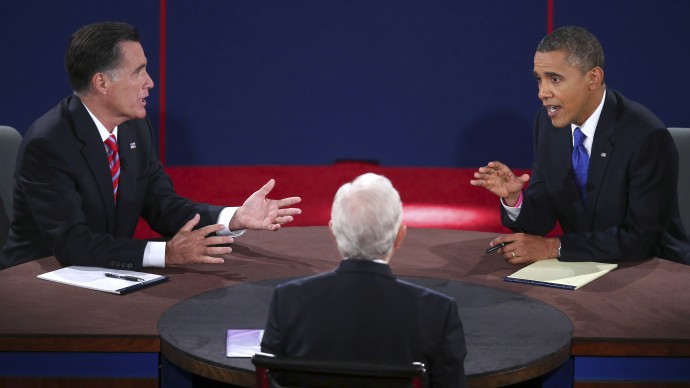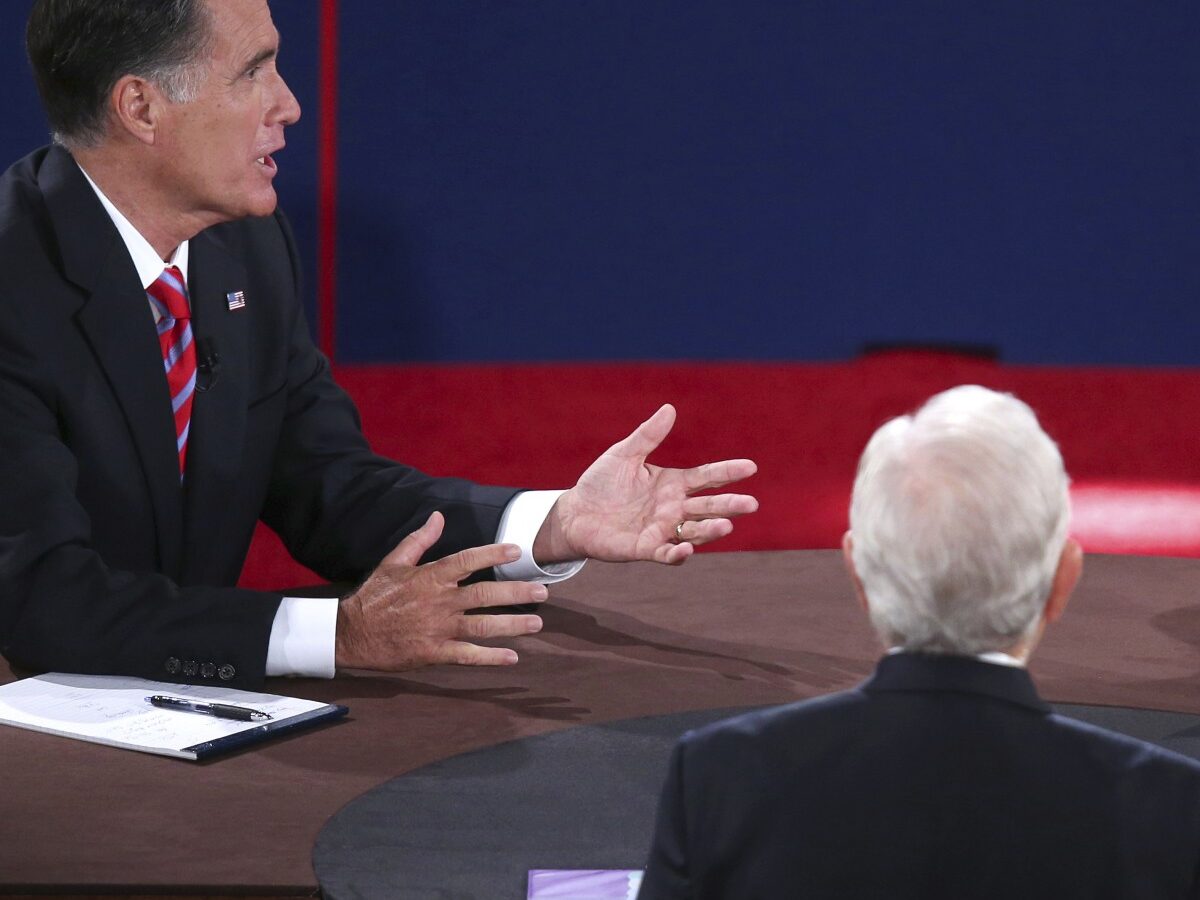
(MintPress) – At the third and final presidential debate Monday night, President Barack Obama found himself verbally sparring with Republican presidential candidate Mitt Romney over whether Romney once supported a bailout of the auto industry. After a back-and-forth conversation, Obama said voters would take it upon themselves to look up the proof and draw their own conclusions. And they did. Google Politics and Elections says it saw a spike in search interest related to Romney and Obama during the contentious conversation. It demonstrated the power of the Internet during political season, with many media outlets turning fact-checking into big business.
Websites such as PolitiFact and FactCheck.org have been launched exclusively to research statements made by politicians. Other traditional news outlets, such as CNN and the Washington Post, have added fact-checking to their reporting repertoires. One of the first published fact checks came in 2003, when the Annenberg Public Policy Center at the University of Pennsylvania created FactCheck.org to document and verify statements made during the presidency of George W. Bush.
David Corn, the Washington Bureau Chief for Mother Jones, wrote that the whole fact-checking movement started with claims of weapons of mass destruction in Iraq – something the media struggled to disprove at the time.
“Big push for independent and ongoing verification of newsmakers’ statements stretches back to the mid-2000s, when many news organizations were on the defensive over their failure to vet the Bush administration’s claims about weapons of mass destruction in Iraq,” Corn wrote.
Transition for media
Since then, political campaigns have been shrouded in a fact-checking spotlight. This election season’s debates have been followed up by day-after fact-checking records that voters have made use of. A Global Strategy Group and Public Opinion Strategies poll shows that half of swing state voters have taken to the Internet to use fact-checking sources when looking into candidates’ statements.
The survey noted that 64 percent of “persuadable” voters have used the Internet to verify statements made during recent political debates. Another 58 percent have said they used the Internet to research the validity of a candidate’s voting record or positions on issues. Interestingly enough, voters and fact-check users tend to trust that brand of information more than traditional news coverage. A 2011 poll conducted by the Hill found that 68 percent of voters believe that there is a bias in news media coverage.
However, the former poll shows that 62 percent say that they trust the fact-checking publications they use online; with 47 percent saying it is easier to tell what is and is not true through fact-checking rather than sifting through traditional media reports.
Hans Peter Ibold, an assistant journalism professor at Indiana University, says many readers may warm up more to fact-checking because many outlets provide a sense of transparency as to why they fact-checked a particular statement – making the reader understand what went into reporting on the topic.
“Today’s fact-checking is bringing the public a little bit closer to news processes, exposing the purposes, methods and even the fallibility of journalism,” Ibold wrote. “Today’s fact-checking is teasing out new norms, such as the recent emphasis on transparency and engagement. Journalists are asking questions like, ‘What should we fact-check?’ And, most legit fact-checking projects include background on how and why the content was fact-checked, as well as any limitations of the approach.”
At a time when newsroom layoffs rose by 30 percent in 2011, the conciseness of fact-checking could become the new normal in political reporting. With consolidated newsrooms comes more diverse responsibility, which critics say has affected the quality of political reporting. David Broder, a longtime Washington Post political reporter, told the American Journalism Review that the confidence voters and readers have in fact-checking already shows it is beneficial. For newsrooms, fact-checking still provides consistent coverage of political figures that holds them accountable.
“So often in the past, the voters have been left with nothing but a ‘he said, she said’ — there was no third source with an objective view,” Broder said. “‘Who are the alternatives?’ is the question. In this respect, the press is becoming a little more aggressive, and that’s good.”
Bias within facts?
It may go without saying that politicians occasionally have gripes with fact-checking outlets. Romney and Republican bloggers have already hinted at a liberal bias from fact-checkers while Brooks Jackson, director at FactCheck.org, said that his organization is lambasted from both ends of the political spectrum for their work.
“We got a six-page letter from the Obama campaign, complaining about a ruling we had done,” Jackson said. “We do get it from both sides. And I think that shows we irritate Republicans sometimes and we irritate Democrats sometimes.”
For Cathy Young, a contributor for RealClearPolitics, fact-checking is a slippery slope when it blends itself with interpreting what politicians said. In an article for Newsday, Young uses the example of Republican vice presidential nominee Paul Ryan saying that Obama broke his promise to keep a Janesville, Wis. auto plant open. Fact-checkers began dissecting formalities of when the plant technically closed and whether it was still on “standby” – finally concluding that it was a “lie.”
Young argues that “facts are rarely just facts” when it comes to multifaceted issues seen with the Janesville claim. She said to ultimately come to the conclusion that it was a lie fact-checkers convoluted the issue even more by introducing complex details from the past. That can complicate matters more for readers, she said.
“Liberal bias or no, it’s always a slippery slope from fact-checking to fact interpretation and labeling dissenting analysis a lie,” Young wrote. “What should pundits do? Either offer clearly labeled opinions, or present the facts as thoroughly as they can and leave readers to draw conclusions.”
Jackson addressed the limits of fact-checking by saying that it’s a quick form of journalism that doesn’t suit every aspect of reporting. Issues stemming from the Janesville dilemma could traditionally have been solved with an in-depth story. Fact-checking, Jackson says, is best served when it can be matched against statistics or voting records.
“It’s basically journalism,” he said. “We go to the most authoritative sources of facts that we can find. If it’s a claim about jobs, we’ll go where the economists go – the Bureau of Labor Statistics – and download the data ourselves and check it out.”


